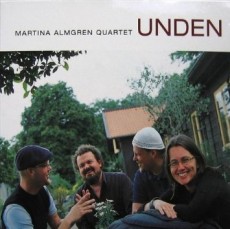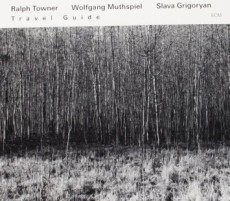
Daily Dose Of Jazz…
Jackie McLean was born John Lenwood McLean on May 17, 1931 in New York City. His father played the guitar in Tiny Bradshaw’s orchestra and started the young man’s musical education until he was eight when the senior John passed away. His godfather, his stepfather who owned a record store and several noted teachers continued his education. He received informal training by neighbors Thelonious Monk, Bud Powell and Charlie Parker.
In high school Jackie played in a band with Kenny Drew, Sonny Rollins and Andy Kirk Jr. By the time he was twenty he was playing alongside Rollins on Miles Davis’ Dig album and went on to record with Gene Ammons, Charles Mingus, George Wallington and to become one of Art Blakey’s Messengers, joining the group after reportedly being punched by Mingus and pulling a knife on the bassist. Fortunately for the jazz world no one was stabbed.
Throughout his early career he was addicted to heroin, which resulted in the loss of his New York City cabaret card. To make a living he undertook a large number of session dates that produced an extensive body of recorded work in the 1950s and 1960s. He recorded for Prestige, then Blue Note both as a leader and sideman. His early recordings as leader were in the hard bop school but later McLean became an exponent of modal jazz without abandoning his foundation in hard bop. His adaptation of modal jazz and free jazz innovations to his vision of hard bop made his recordings from 1962 on distinctive.
He worked with the greats of the time not limited to Donald Byrd, Sonny Clark, Lee Morgan, Ornette Coleman, Dexter Gordon, Freddie Redd, Billy Higgins, Freddie Hubbard, Grachan Moncur III, Bobby Hutcherson, Mal Waldron, Chalres Tolliver, Tony Williams, Michael Carvin, Carl Allen, Bill Hardman, Larry Wilis and Tina Brooks.
By 1967 he abandoned recording for touring and the following year started his teaching career at The Harrt School at the University of Hartford. He would establish the university’s African American Music Department that evolved into the Jackie McLean Institute of Jazz) and its Bachelor of Music degree in Jazz Studies program.
Along with his wife Dollie, they founded the Artists Collective, Inc. of Hartford, and his bands were drawn from his students including Steve Davis, his adopted son Rene and pianist Mark Berman. He received an American Jazz Masters fellowship from the National Endowment for the Arts, inducted into the DownBeat Hall of Fame, and a biography titled Sugar Free Saxophone, as well as numerous other national and international awards. McLean is the only American jazz musician to found a department of studies at a University and a community-based organization almost simultaneously and they each have existed for over three decades.
After a long illness, alto saxophonist, composer, educator and bandleader Jackie McLean passed away on March 31, 2006 in Hartford, Connecticut.

Daily Dose Of Jazz…
Kidd Jordan was born Edward Jordan on May 5, 1935 in Crowley, Louisiana and grew up listening to Zydeco and blues. His first instruments were C-melody and alto saxophones and while in high school he began performing stock arrangements for three or four saxophones with some older musicians. He read transcribed solos in Down Beat magazine, credits Illinois Jacquet with the idea of free improvisation and the free jazz of Ornette Coleman.
Kidd majored in music education and after completing his degree at Southern University in Baton Rouge, he relocated to New Orleans and began playing R&B gigs with Guitar Slim, Ray Charles, Big Maybelle, Big Je Turner, Gladys Knight, Aretha Franklin, Little Esther, Lena Horne and others. He taught at Southern University New Orleans from 1974 to 2006.
Jordan performs on tenor, baritone, soprano, alto, C-melody and sopranino saxophones as well as contrabass and bass clarinets. He has recorded with a wide selection of musicians in styles ranging from R&B to avant-garde jazz, including Stevie Wonder, Archie Shepp, Fred Anderson, Ellis Marsalis, Ornette Coleman, Cannonball Adderley, Ed Blackwell and Cecil Taylor on the short list.
Jordan taught Donald Harrison and Branford Marsalis, and Charles Joseph the co-founder of the Dirty Dozen Brass Band. He was an instructor at the New Orleans Center for Creative Arts, and suffered the loss of his home and possessions during Hurricane Katrina. He recorded his album Palm of Soul shortly afterwards, that has had a track featured on the TV series Treme as well as making a guest appearance. The multi-instrumentalist continues to perform and teach.

Daily Dose Of Jazz…
Evan Shaw Parker was born on April 5, 1944 in Bristol, England and his original inspiration was Paul Desmond and the cool jazz saxophone scene with later influences being Warren Marsh and Lee Konitz. Better known for his later work, he rapidly assimilated the American avant-garde of John Coltrane, Pharoah Sander, Albert Ayler and others and forged his own, instantly identifiable style.
Parker’s music of the 1960s and 1970s involves fluttering, swirling lines that have shape rather than tangible melodic content. He began develop methods of rapidly layering harmonics, false notes, circular breathing and rapid tonguing which initially were so intense that he would find blood dripping onto the floor from the saxophone. He also became a member of the important big band, The Brotherhood of Breath.
Evan became interested in electronics and his collaboration electronically processed his playing in real time, creating a musical feedback loop or constantly shifting soundscape. He has recorded a large number of albums both solo or as a group leader, and has recorded or performed with such musicians as Peter Brotzmann, Derek Bailey, Anthony Braxton, Cecil Taylor, George Lewis, Joe McPhee, Mark Dresser and Dave Holland among numerous others.
Parker is one of the few saxophone players for whom unaccompanied solo performance is a major part of his work. Along with Bailey and drummer Tony Oxley founded the Incus record label in 1970. The label continued under Bailey’s sole control, after a falling-out between the two men in the early 1980s and currently Parker curates the Psi record label. He also performs monthly at London’s Vortex Jazz Club.
Though Parker’s central focus is free improvisation, he has also occasionally appeared in more conventional jazz contexts, such as Charlie Watts Big Band, Kenny Werner’s ensembles, and Gavin Bryars’s After the Requiem. He has also performed in pop and rock settings but remains a pivotal figure in the development of European free jazz and free improvisation and has pioneered or substantially expanded an array of extended techniques on the European free jazz scene.
More Posts: saxophone

Daily Dose Of Jazz…
Martina Almgren was born on March 20, 1962 in Sweden and was surrounded by music as a child. She started playing the piano, then soon followed with the flute. In her late teens she was caught entirely by the drums, that became her primary instrument, along with the freedom in jazz and improvised music. It was some years later that she began composing her own music.
A colorful addition on the contemporary Swedish jazz scene, Almgren is passionate about playful improvisation, enticing rhythms and expressive melodies. This is reflective in her drumming as well as her compositions. She heads her own band, Martina Almgren Quartet, and has released four albums since 1999.
Martina together with Owe Almgren lead the Oh Yeah Orchestra comprised of ten of the top jazz musicians on the Swedish scene. In 2009 she was commissioned to compose for Swedish Jazz Celebration for Oh Yeah Orchestra. The album with the music “Freedom of Movement” was released in 2011. She expanded her performing on the European scene in 2007 when she teamed up with Scottish saxophonist Laura Macdonald on their album Open Book in 2008 followed by another in 2012.
She has been a part of Tom Bancroft´s Band of Eden, Nikki Iles Quintet and MOZ Trio that released their debut album “Sparkling Water, Please” released on the new Swedish label Oh Yeah Records in 2013. Drummer and composer Martina Almgren teaches improvisation classes at the Academy of Music and Drama at the University in Gothenburg, performs, records and tours.
More Posts: drums

Daily Dose Of jazz…
Ralph Towner was born on March 1, 1940 in Chehalis, Washington. Born into a musical family, his mother a piano teacher and his father a trumpet player, Towner learned to improvise on the piano at the age of three. He started trumpet lessons at the age of five, but did not take up guitar until attending the University of Oregon.
Ralph first played jazz in New York City in the late 1960s as a pianist and was strongly influenced by the renowned jazz pianist Bill Evans. He began improvising on classical and 12-string guitars in the late 1960s and early 1970s; and formed alliances with musicians who had worked with Evans, including flautist Jeremy Steig, Eddie Gomez, Marc Johnson, Gary Peacock ad Jack DeJohnette.
He began his career as a conservatory-trained classical pianist, who picked up guitar in his senior year in college, then joined world music pioneer Paul Winter’s Consort ensemble in the late 1960s. Leaving Winter along with band mates Paul McCandless, Glen Moore and Colin Walcott, they formed the group Oregon, mixing folk, Indian classical, avant-garde jazz and frr improvisation.
Around the same time, Towner began a longstanding relationship with ECM Records, releasing virtually all of his non-Oregon recordings since his 1972 debut as a leader Trios / Solos. As a sideman he has ventured int jazz fsion with Weather Report on the 1972 album I Sing The Body Electric.
Unlike most jazz guitarists, Ralph only uses 6-string nylon-string and 12-string steel-string guitars. He tends to avoid high-volume musical environments, preferring small groups of mostly acoustic instruments that emphasize dynamics and group interplay. He make significant use of overdubbing, allowing him to play piano or synthesizer and guitar on the same track. During the Eighties he used more synthesizer but has returned to the guitar in recent years.
Composer, arranger, bandleader and multi-instrumentalist Ralph Towner, who plays 12 string guitar, classical guitar, piano, synthesizer, percussion and trumpet, has an impressive catalogue of some five-dozen recordings spread between his role as a leader, with Oregon, and as a sideman with Paul Winter and Weather Report among others. He continues to perform, record and tour.
More Posts: guitar,percussion,piano,synthesizer,trumpet


